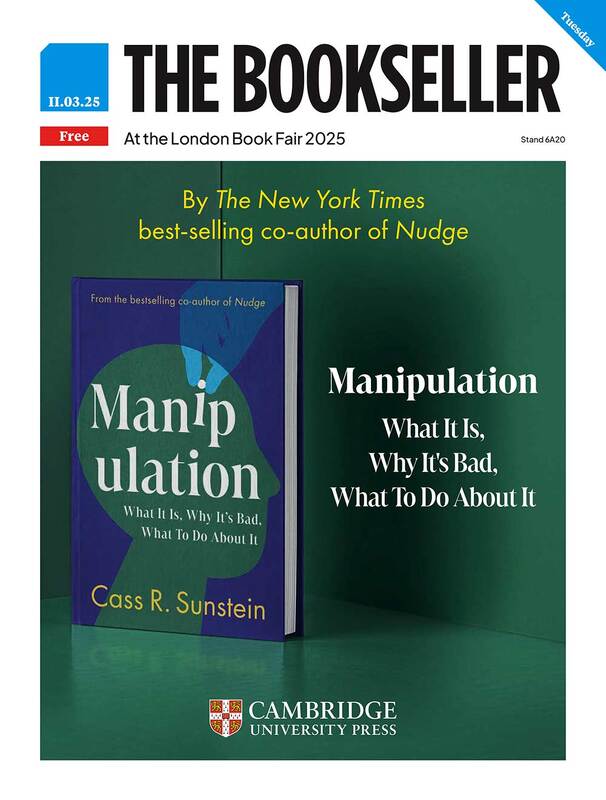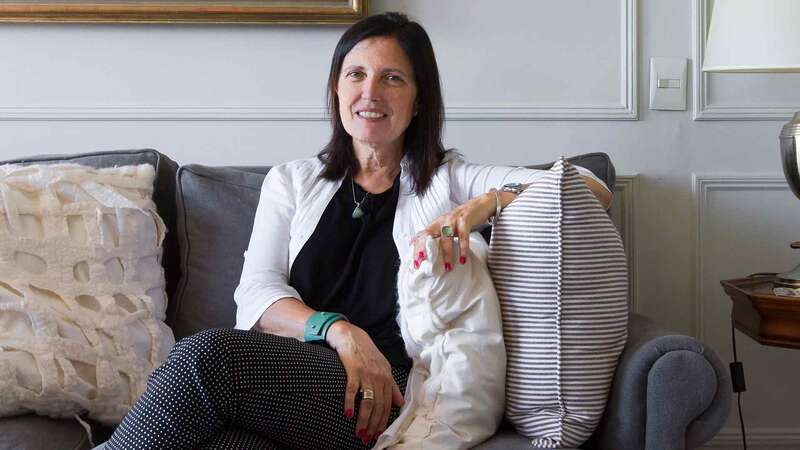You are viewing your 1 free article this month. Login to read more articles.
Campaigners 'thrilled' by prison books ruling
Campaigners and prominent trade figures, including many high-profile authors, have expressed their delight with the High Court’s decision to rule the government's ban on sending books to prisoners unlawful.
Author Tracy Chevalier (pictured) said she was "thrilled" with the High Court's decision. "Books are one of the best ways of showing people how others think and live, and through that, developing compassion,” she told The Bookseller. “That can have such a rehabilitating effect on prisoners, and in the end, isn’t that what we want? Most prisoners will rejoin society at some point, so prison can’t only be about punishment, it has to incorporate rehabilitation too, or we are in real trouble," she said. "Books are the cornerstone of education, and as such should be a right rather than a privilege."
J K Rowling tweeted that she was "delighted" to hear the ruling, while Carol Ann Duffy, who fronted the protest about the book ban, told the Guardian : "This is a wise, just and irrefutably correct ruling. We all look forward to hearing to which prison library Mr Grayling will be sending books for Christmas.” Ian McEwan, meanwhile, added: “The imagination triumphs over small-mindedness. This is great news for prisoners, great news for the book.”
Jo Glanville, director of English PEN, which has campaigned along with The Howard League for the restriction to be overturned, said the judgment was recognition books are a necessity “and not a privilege.” She said: “English PEN has seen the importance of reading in prison at first-hand through the direct impact on individuals in our workshops around the country. The government should overturn the restrictions with immediate effect. Its reluctance to address the issue, despite the public outcry and support of leading authors over the past year, has been short-sighted and self-defeating.”
Frances Crook, c.e.o of the Howard League for Penal Reform, said the rule should be lifted immediately so that prisoners could receive books for Christmas. “The Howard League launched the Books For Prisoners campaign nine months ago and we are very glad that common sense has now prevailed in time for Christmas, when for three weeks prisons will be virtually in lockdown. During that time, receiving a book from a loved one could literally save a life." He added: “I hope that that the Ministry of Justice will respond to this judgment in a mature way and will not waste further public money by fighting it in the courts. Ministers should implement this decision immediately so that prisoners can get books for Christmas."
Nicola Solomon, c.e.o. The Society of Authors, called the decision "sensible", commenting: “HHJ Collins' judgment has established the points made by many others since the ban was announced: books are important and it is unnecessary and irrational to restrict access to them," she said.
Tim Godfray, c.e.o of the Booksellers Association, wrote to Chris Grayling earlier in the year expressing his "dismay" at the book ban decision, saying: "the restrictions on sending books to prisoners, in addition to restricted access to prison libraries, make it as difficult as possible for the determined readers in any given prison population to maintain a reading habit. This further impacts on the non-reading majority as it reduces the potential for a learning culture within prisons." Today (5th December) he said he was "very pleased" with the High Court's decision. "This is truly excellent news," he said.
The Publishers Association's chief executive Richard Mollet earlier called the ruling "a victory for common sense, dignity and decency". He said: "Reading can play a huge part in rehabilitation and to deny this most basic of rights and enjoyments to prisoners always appeared daft and unnecessarily vindictive. Let us hope that the Ministry of Justice follows the Court’s ruling without further quibble and allow prisoners to receive and engage with books.”
Earlier today (5th December), The High Court ruled the government’s ban on sending books to prisoners was unlawful, with Mr Justice Collins saying he could see “no good reason” for the rule, “in the light of the importance of books for prisoners.”
New measures were brought in in November last year in England and Wales, preventing prisoners receiving parcels unless under “exceptional circumstances”.
The High Court gave its ruling after the case was brought by Barbara Goron-Jones, a life sentence prisoner at Send Jail in Surrey.
Mr Justice Collins said: "I see no good reason in the light of the importance of books for prisoners to restrict beyond what is required by volumetric control and reasonable measures relating to frequency of parcels and security considerations."
Referring to prisoners' earning privileges, Justice Collins added: "In the light of the statement made about the importance of books... to refer to them as a privilege is strange."
Since the ruling came to light in March this year, authors have fervently protested about it, including Carol Ann Duffy, Ian Ranking, Sarah Waters and Jacqueline Wilson. A petition against the ban has since gained 30,000 signatures.


















